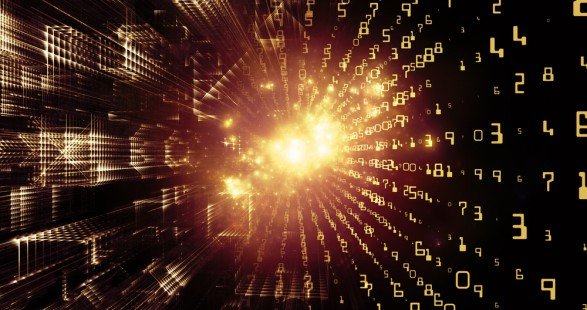MACHINE LEARNING FOR THE PREDICTION OF CRYPTOCURRENCIES
According to a recent study by MIT, predicting the course of Bitcoin would be mathematically possible thanks to machine-learning. What stir up the greed of investors and people using bitcoin.

Machine-learning at the service of the prediction of virtual currencies
Machine-learning (or machine learning) is the discipline that focuses on automatizable methods that allow a machine (in the broad sense) to evolve through a learning process and thus to fulfill tasks that the classical algorithmic does not allow to perform. It is therefore by definition one of the fields of study of artificial intelligence: to teach machines to develop learning processes so that they become "intelligent".
This is one of those topics most exploited by the giants of the web, Google in mind. The firm Moutain View has indeed acquired in January DeepMind Technologies, a start-up of 12 people specializing in Deep Learning, for 400 million dollars. Facebook is also interested: the firm of Mark Zuckerberg recruited last year the French Yann LeCun, professor at New York University and specialist in the field. The Facebook AI Lab has indeed made major advances in machine learning.
But MIT researchers have applied machine-learning to financial speculation on financial currencies. Belonging to the Computer Science and Artificial Intelligence Laboratory, they have created a machine learning algorithm that would be able to predict the price of bitcoin crypto currency, and have managed to double their investment over a period of 50 days.
Bitcoin refers to a peer-to-peer network formed as a register (with chains of blocks) based on asymmetric cryptography: a key (parameter allowing to encrypt data and therefore to protect them) called "public" and a key " private "which allows to authenticate transactions. People in the registry can trade bitcoins, a virtual currency unit for that network. The integrity of the transactions is ensured by "minors", sort of moderators of the network and who verify the financial operations.
MIT researchers collected data from major bitcoin transactions every second for 5 months, accumulating more than 200 million data. Using the mathematical model of "Bayesian regression" (allowing to draw probabilities of random events), they led to an algorithm able to identify the models emanating from these data and thus to predict prices and therefore to know when to sell or buy bitcoins. For example, every 2 seconds, they were able to evaluate the average transaction amount within 10 seconds, and if the price was above or below a certain threshold, they would sell, buy, or do nothing. surgery.
Bitcoin is a volatile currency because it is still in "construction" as a financial asset, and its definition is still debated (money, raw material, technology). This algorithm shows that speculation is also possible on virtual currencies, and highlights the fragility of this virtual currency. Devavrat Shah, one of the project leaders, had already used this algorithm to predict trends on Twitter, and think they can apply his algorithm to the price variation caused by human factors.
I watch he trading on Binance and the buys and sells fly by at an amazing pace. It all seems to me like a lot of thrashing about.
I hear something like 90% of day traders end up losing. I wonder what fraction of trading bots also end up being losers.